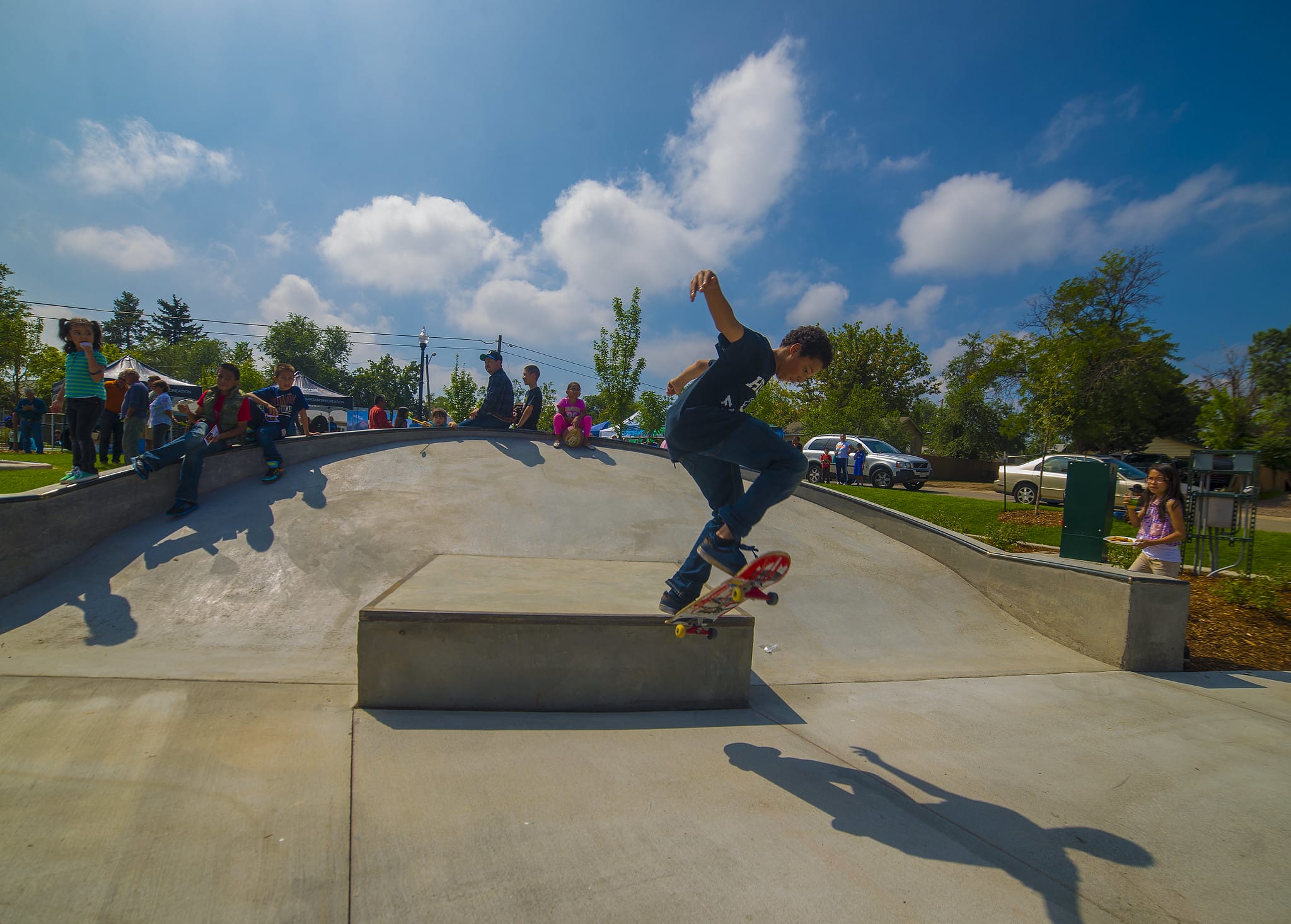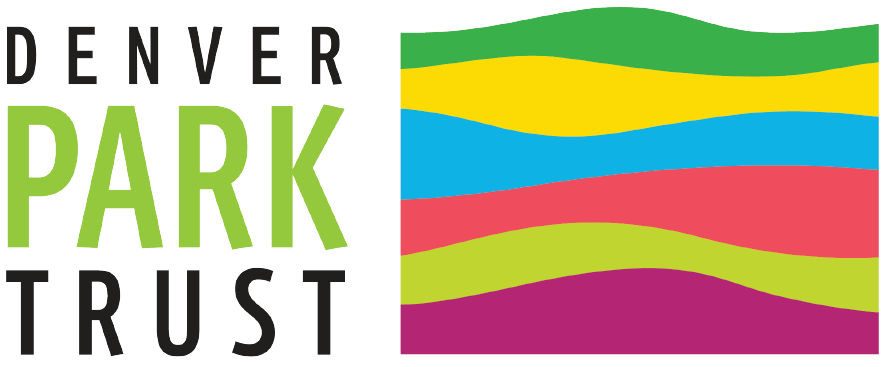Our Approach
To improve and expand Denver’s park system in thoughtful, equitable, and sustainable way, the Denver Park Trust is intentional about what we fund, where we work, and how we select our projects.

What We Fund
New Parks
The Denver Park Trust is mission-driven to add new parks to Denver. Parks provide residents with improved mental and physical well-being, add to our urban tree canopy, and help diminish the urban heat island effect.
We have created a Park Fund to fund the acquisition of land for new parks. Funded through a set aside of ten percent of all unrestricted donations, the Park Fund will be leveraged with public, private and philanthropic dollars to invest in additions to existing parks and new neighborhood, community, and regional parks.
Donate to the Park Fund and help us grow Denver’s park system in neighborhoods that lack a ten minute walk or roll to a park.
Large Park Improvements (Capital Projects)
The Denver Park Trust provides funding for large park enhancements, also known as capital projects, like playgrounds, walking trails, and skateparks. All projects are aligned with Game Plan for a Healthy City, Denver Park and Recreation’s 20 year strategic plan and its 2022 Equity Index.
At any time, Denver Parks and Recreation may have several capital projects underway and more in the pipeline. In some cases, additional outside funding can add additional amenities requested by the community or supplement any shortfalls due to increases in construction costs. The Denver Park Trust provides “gap” funding where needed to ensure projects meet community expectations.
Community Grants
Through its Community Grant Program, the Denver Park Trust supports community-driven park projects, programs, or initiatives that make Denver parks demonstrably better in historically under-resourced areas of the city.
We award up to $5,000 for community-led, small-scale, high-impact park improvement projects. We also assist in navigating Denver Parks and Recreation, fundraising, and building project-specific collateral and more.
To date, the Community Grant Program has funded over six community grants, totaling $30,000 of investment in local parks.
Where We Work
To guide investment decisions and prioritize areas of greatest need, we use Denver Parks and Recreation’s 2022 Equity Index as a way to ensure our efforts are directed toward the neighborhoods that need in most.
Key Equity Indicators
Several indicators are used to come up with the final map. These indicators include: Residential units within 10-minute walk or roll of a park 10-year history of capital investments in parks Park and open space acres per 1000 residents Number of residents per square mile Percent of population of color (non-white) Percent of population under 18 years of age Percent of low-income population Percent of children overweight or obese (click to expand)
Park Access
Park Investment
Park Acres
Density
Communities of Color
Youth
Low-Income
Overweight and Obesity Prevalence

How We Select Projects
The Denver Park Trust’s goal is to ensure more equitable access to Denver parks through land acquisition for new parks and park improvement initiatives. In order to fulfill our vision, we know it’s essential to pick the right projects, and that means selecting parks that have been traditionally forgotten, or neighborhoods that have been historically under-resourced.
In partnership with our founding board members, and Denver Parks and Recreation, we’ve devised a set of criteria that helps us select projects that are most in need of support. We consider everything from existing access to green spaces, to community interest and involvement. Below, you can view the six tenets of our selection process.
1. Equity
Using the Denver Parks and Recreation’s 2022 Equity Index as a guide to evaluate the socioeconomic, environmental, and health barriers that residents of Denver neighborhoods face as well as existing park access, size, and investment, will this park project contribute to a more equitable park system?
2. Access
Referencing the Trust for Public Land’s 10 Minute Walk, which states a goal of all Americans living within a 10 minute walk or roll of a park by 2050, will this project contribute to improving park access to a high-quality park in an underserved area?
3. Historical & Cultural Significance
Does this project have cultural or historical significance specific to Denver or the neighborhood it serves?
4. Community Involvement
Has this project garnered interest or action from community members? Is there noticeable interest in residents in the neighborhood, volunteer work, assistance, or other support?
5. Health & Wellbeing
Referencing Denver Parks and Recreation’s Game Plan for a Healthy City, which focuses on providing more resilient green spaces to more Denver residents, will this project contribute to the overall health and environment of Denver?.
6. Funding
Does this project have any financial support or commitments either from the government or community that can be leveraged by the Denver Park Trust’s fundraising efforts?
